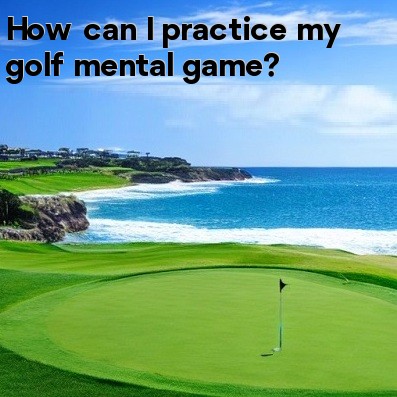
In golf, How can I practice my golf mental game?
Golf is often hailed as a mentally challenging sport. It requires focus, concentration, and a strong mental game to succeed on the course. While physical practice is important, it is equally crucial to train your mind to handle the pressures and challenges of the game. Here are a few ways you can practice your golf mental game:
- Visualization: Visualizing your shots before you take them can help improve your performance on the course. Close your eyes and imagine the perfect swing, the ball flying through the air, and eventually landing exactly where you want it to. This technique helps train your mind to focus on positive outcomes and build confidence.
- Positive self-talk: Your inner dialogue can have a significant impact on your game. Instead of being self-critical or negative after a bad shot, try practicing positive self-talk. For example, tell yourself that you can recover from this setback and that the next shot will be better. Encouraging and supporting yourself mentally can lead to improved performance.
- Managing emotions: Golf can evoke a range of emotions, from frustration to excitement. Learning to manage these emotions is key to maintaining focus and composure on the course. Practice deep breathing exercises to reduce stress and anxiety. Take a moment to calm yourself down before each shot, allowing yourself to focus on the task at hand.
- Staying present: One of the biggest challenges in golf is staying fully present in the moment. It's easy to get caught up in past mistakes or worry about future shots. However, this takes away from your ability to fully concentrate on the shot at hand. Practice mindfulness techniques to bring your attention back to the present moment, focusing on each shot individually.
- Creating a routine: Establishing a pre-shot routine can help you develop consistency and reduce anxiety on the course. This routine can include visualizing the shot, taking practice swings, and settling into your stance. By following the same routine before each shot, you can train your mind to enter a focused and confident state.
- Setting goals: Goal setting is an essential aspect of improving your mental game. Create both long-term and short-term goals for your golf game. These goals can be related to your swing, your putting, or your mental approach. By having clear objectives, you can track your progress and stay motivated.
Remember that developing a strong mental game takes time and practice. Incorporate these techniques into your training routine and be consistent in your efforts. In addition to physical practice, dedicating time to improve your mental game will ultimately lead to better results on the golf course. Stay focused, stay positive, and enjoy the process!





